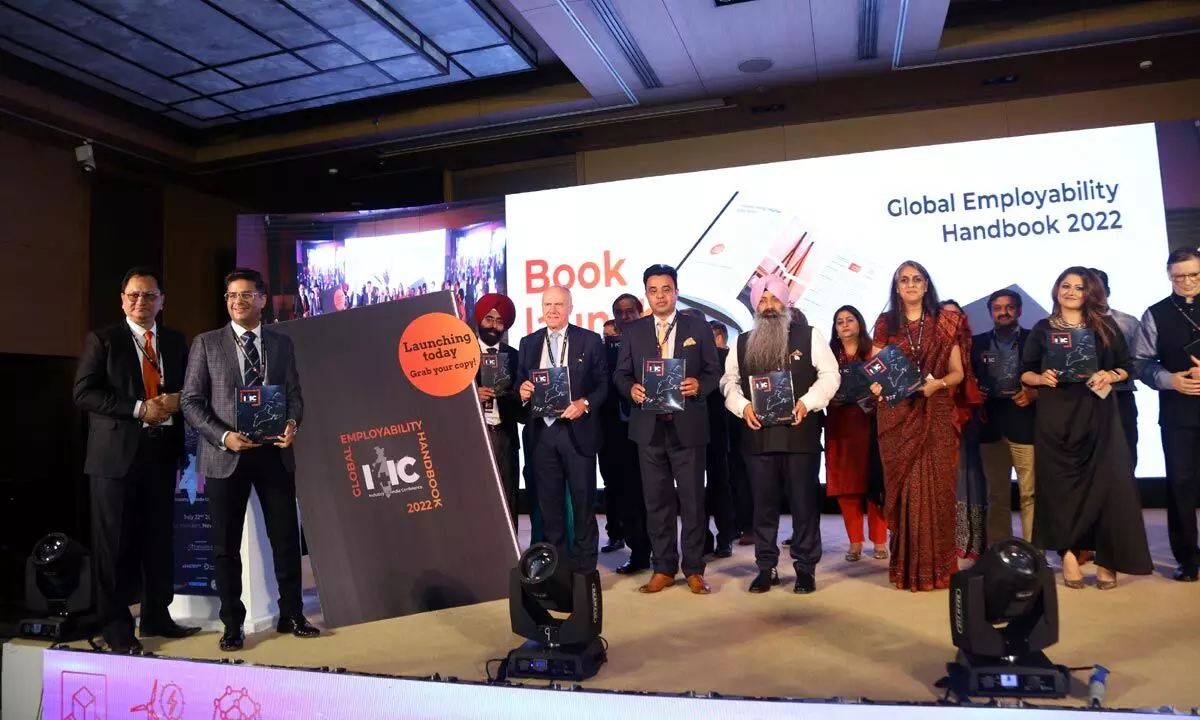Industry Experts, Academia To Focus On Retaining Technically Trained Workforce

Industry Experts, Academia To Focus On Retaining Technically Trained Workforce
India is on a fast track to rejuvenating its talent pool, thanks to the greater push given towards the promotion of technical training and suitable employment generation amongst the younger generation in India.
New Delhi: India is on a fast track to rejuvenating its talent pool, thanks to the greater push given towards the promotion of technical training and suitable employment generation amongst the younger generation in India. While the education and industry experts have come forward to impart technical training, the concern remains on how to retain that talent within the country.
On Friday, industry executives, academic leaders and policy makers came together to hold a discussion on scope to boost digital skills at the conference Industry 4.0 India Conference. During a panel discussion on India's Digital Skills Gap, Dr. Sandeep Singh Kaura, Adviser to the Government of Punjab, Skill Development & Technical Education stressed the need for streamlined coordination between industry and academia. Noting that representatives from industry and academia keep meeting each other, there is a need for the two sides to come together and work together as currently they largely move parallel to each other.
Talking about his experience in boosting the sector in Punjab, Dr Kaura said that the State Government brought all the different initiatives under one department and the focus has shifted to execution of initiatives and partnerships with the industry.
Speaking to Hans India, Ms. Kirti Sethi, CEO, Sector Skill Council, NASSCOM, said that the Covid-19 pandemic presented an opportunity to familiarising students and educators with the virtual environment, which has made faculty training a lot easier. Ms Sethi believes that the current faculty evaluation criteria is cumbersome but in future it will become easier to adopt a new evaluation model as the hybrid mode settles in.
"We see a lot of interest for faculty to learn. Ofcourse, my contention is that interest is there but how many of them end up doing it. It has to go hand-in-hand. You cannot talk about student training without faculty training. Industry is very keen to contribute, there are great faculty development institutions available. But the faculty evaluation criteria have to change to enable them to invest in themselves," Ms. Sethi told Hans India.
Senator Eric Abetz, Patron of Indian Association for the Study of Australia (IASA), during the discussion welcomed Indian students to Australia and said the growing partnership between the two countries would only enhance the educational exchange between India and Australia.
Highlighting the strategic significance of India, the Senator said, "The Indian Diaspora in Australia is the third largest group of migrants in the country. India is becoming more and more important for Australia. We would encourage as many students as possible to come to Australia, get educated and return to India and grow the economy."
I4IC, Employability.life also launched the Global Employability Handbook 2022, a compendium of insights and recommendations from policy makers, industry professionals and educational innovators from India, Australia, and the United Kingdom.
Dr. Manish Malhotra, Chairman & MD of Digital Commonwealth, Founder of ATMC Education Group, said, "India's digital skill gap has the greatest GDP growth risk at an average of 2.3% per annum and India's digitally skilled workforce needs to grow nine-fold by 2025."
Dr. Malhotra said that the biggest challenge for academia today is to find a right balance as to what kind of staged qualifications that can be offered to youngsters so that the learners need not feel burdened by the academic heaviness. He said that both the academia and the industry have recognised how these staged qualifications can be divided into small pieces of financial commitment so that skill training does not put a monetary strain on the learner. He also noted that though automation will give precedence to certain technical courses, old jobs will be replaced with new jobs.
Speaking on the scope of Metaverse in skill training, Dr. Malhotra said, "I am not a big fan of Metaverse but it has to be there. A lot of work has happened already. But now that the big companies have started talking about Metaverse and hardware companies have started manufacturing the gadgets. There is no way we can avoid Metaverse. The question remains as to how fast we will adopt it,"








